All Stories
-
 Animals
AnimalsKiller whales follow postmenopausal leaders
Taking the lead on salmon hunts may be postmenopausal killer whales’ way of sharing their ecological knowledge.
By Susan Milius -
 Health & Medicine
Health & MedicineArsenic spurs adaptation in Argentinian villagers
The people of San Antonio de los Cobres, Argentina, have genetic adaptations that may help them efficiently get rid of arsenic, a new study shows.
-
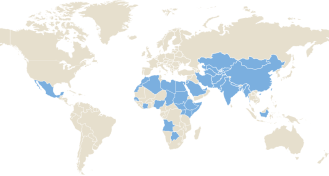 Health & Medicine
Health & MedicineHepatitis E vaccine shows strong coverage
A large trial in China indicates that a vaccine can provide 87 percent protection against the hepatitis E virus, which infects 20 million people a year.
By Nathan Seppa -
 Health & Medicine
Health & MedicineReport offers stimulating recommendation on coffee
Results from a committee of experts give the blessing to moderate coffee intake. But as we all raise our mugs, the science behind the report is worth a closer look.
-
 Health & Medicine
Health & MedicineDose of extra oxygen revs up cancer-fighting immune cells
Extra oxygen helps immune cells shrink tumors in cancer-ridden mice.
-
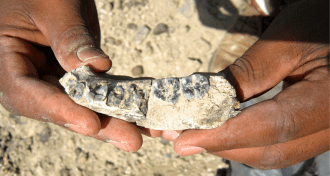 Humans
HumansAncient jaw may hold clues to origins of human genus
A 2.8-million-year-old fossil from Ethiopia raises questions about the origins and evolution of the human genus, Homo.
By Bruce Bower -
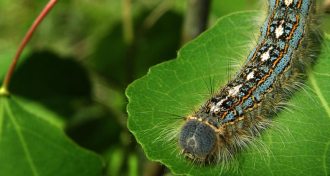 Animals
AnimalsInsects may undermine trees’ ability to store carbon
Insects eat more leaves on trees grown in carbon dioxide-rich environments than those grown without the extra CO2. That may undermine forests as carbon sinks in the future.
-
 Physics
PhysicsWhy lattes are less prone to spills than regular coffee
Foam dampens liquids’ sloshing, keeping keeps lattes and beer from spilling so easily, researchers find.
-
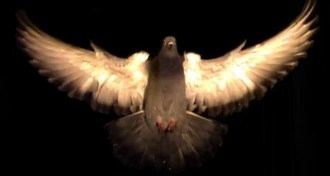 Animals
AnimalsHow pigeons bob and weave through obstacles
When navigating an obstacle course, pigeons weigh energy efficiency against the danger of collision, research finds.
-
 Earth
EarthVolcanic lightning forges tiny glass balls from airborne ash
The lightning that crackles through volcanic plumes can melt ash into tiny glass beads.
-
 Astronomy
AstronomyHundreds of galaxies seen in a new 3-D view of the universe
A new instrument lets astronomers measure the distances to hundreds of galaxies at once, looking back across the age of the universe.
-
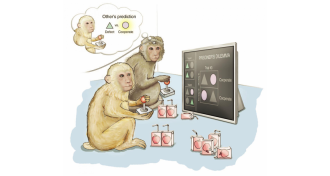 Neuroscience
NeuroscienceBrain cells predict opponent’s move in game-playing monkeys
Newly discovered brain cells help monkeys predict whether a companion will cooperate.